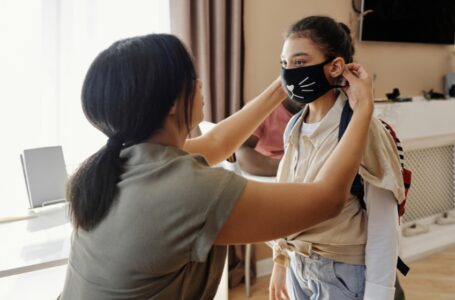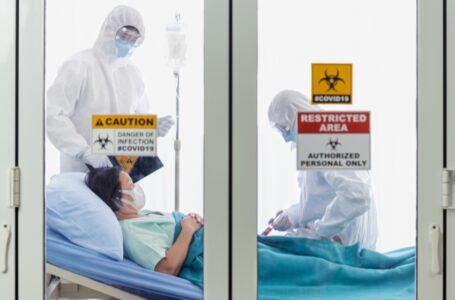Everything You need to know about Moderna Vaccine
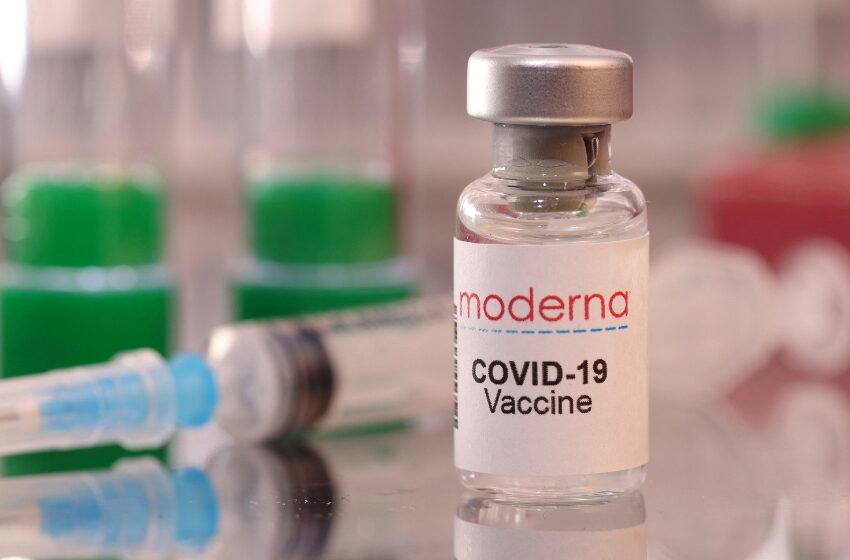
The Australian Technical Advisory Group on Immunisation or ATAGI approved Spikevax (Moderna) for use as a vaccine in the primary course. Moreover, it is appropriate for children aged six months and above; it is also available as a booster shot for people aged 18 years and above. The chronological approval schedule of Moderna in Australia is as follows:
- 9 August 2021 (primary course – for 18 years and over)
- 3 September 2021 (primary course – for 12 years and over)
- 7 December 2021 (booster – for 18 years and above )
- 17 February 2022 (primary course – for six years and above) (half the adult dose).
- 19 July 2022 (primary course – for children six months and above) (6-month to 5-year formulation)
- 30 August 2022 (booster – for 18 years and over) (bivalent original/Omicron BA.1 formulation)
Moderna as a bivalent Covid-19 vaccine
TGA gave provisional approval to Moderna’s bivalent COVID-19 vaccine as a booster dose for adults aged 18 and above. Besides, ATAGI stated that healthcare providers or doctors could use the Moderna bivalent vaccine as an alternative vaccine for booster doses in people aged 18 and above.
Furthermore, Moderna bivalent Covid-19 vaccines aim at the original vaccine strain of 2020 and the Omicron variant BA.1. ATAGI found that it improves the immune response against both strains. Still, the bivalent and original vaccines do their part to protect against the Omicron subvariant infections.
Besides, the bivalent vaccine’s first doses have already arrived in the country and underwent batch trials by the TGA. Then, the health department included it in Australia’s Covid-19 vaccine rollout in October 2022 as Moderna Covid-19 stocks have exhausted. Meanwhile, it is imperative to note that ATAGI has not included any changes to its present third and fourth-dose recommendations.
What is the dosing schedule?
ATAGI recommends most people take a primary course of 2 doses, eight weeks apart from each other. However, you can reduce the dosing interval to three weeks; the health advisory group suggests a shorter interval for those at higher risk of getting severe Covid-19. Besides, older adults, people with underlying medical conditions, and those planning for international travel must consider shorter intervals.
Also, one would get optimum protection against the disease until the completion 14 days after taking the vaccine. But on the other hand, severely immunocompromised people must get a third dose as a part of their primary course. And Moderna is an appropriate third dose that the doctor or healthcare provider can give eight weeks after the primary course’s second dose.
You must collect adequate information about third doses for severely immunocompromised people.
Moderna as booster doses
Doctors or healthcare providers can administer Moderna as a booster dose for people 18 years and older. Furthermore, they can give it three months or more after the primary course; the ATAGI suggests some people get a second booster shot (fourth dose) three months after their first booster dose.
But if you have had Covid-19, you must wait three months after your confirmed infection to get vaccinated.
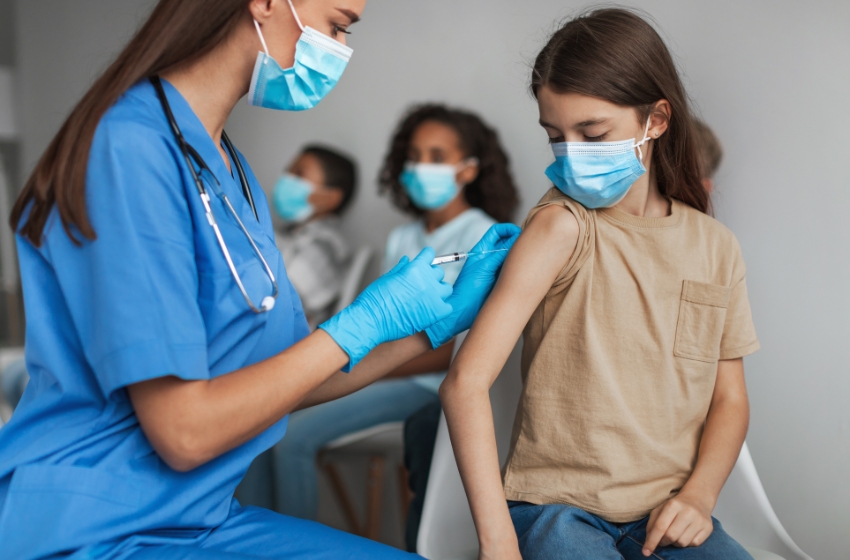
Can Children get the Moderna vaccination?
The Therapeutic Goods Administration(TGA) has given provisional approval to Spikevax(Moderna) for children aged six months and above. Furthermore, you must be aware that vaccinating children is significant to protect them against Covid-19. And it prevents them from spreading the virus to their siblings, grandparents, parents and the community.
You can find additional information on COVID-19 vaccines and children.
What is in the Moderna vaccine?
The Moderna vaccine is a messenger RNA type (mRNA) vaccine that uses a genetic code known as RNA to enable your body cells to generate specific spike protein of Coronavirus. As a result, the immune system cells recognise the spike protein as a threat and build an immune response against it.
Nevertheless, the RNA from the vaccine does not cause any changes to your DNA; eventually, your body breaks it down.
However, if you still need to clear your doubts about the Moderna vaccine’s composition, you can read the Spikevax Consumer Medicine Information document.
What are the Moderna vaccine’s benefits?
As is typical with all vaccines, Moderna has a few side effects that do not have much impact on people’s health. Moreover, Moderna’s benefits are more compared to risks; extensive clinical trials proved that the vaccine effectively prevents Covid-19 in people aged 12 and above.
Besides, adults who had Moderna’s two doses are 94 percent less likely to become sick from Covid-19 than those who did not get vaccinated. Also, it protects people aged 65 and above and adolescents aged 12 to 17 from the disease.
What are the most common side effects of Moderna?
You may have some temporary side effects after getting the Moderna vaccination, such as:
- pain at the injection site
- tiredness
- headache
- muscle pain
- fever and chills
- joint pain.
On the other hand, a few less common side effects include:
- redness or swelling at the injection site
- swelling or tenderness in the armpit
- nausea/vomiting
- enlarged lymph nodes.
However, doctors and patients have noted that most side effects are mild and it goes away within a few days.
What are some rare side effects?
Severe allergic reactions (anaphylaxis) and heart-related diseases myocarditis and pericarditis are some rare side effects of Moderna.
Besides, in some cases, people may encounter myocarditis (inflammation of the heart) and pericarditis (inflammation of the membrane around the heart) after taking the Moderna vaccine. And these side effects occur within one to five days of vaccination; it typically happens to men under 40 and after completing their second dose.
But doctors found that sometimes the side effects can occur to people irrespective of gender, age, and after any dose. However, most cases have been reported to be mild symptoms that go away within a few days. Hence, you need to visit the doctor or go to the hospital in case you encounter the following symptoms:
- Fainting
- shortness of breath
- pain when breathing.
- Pressure or discomfort in the chest
- Chest pain
- irregular, skipped heartbeats or ‘fluttering
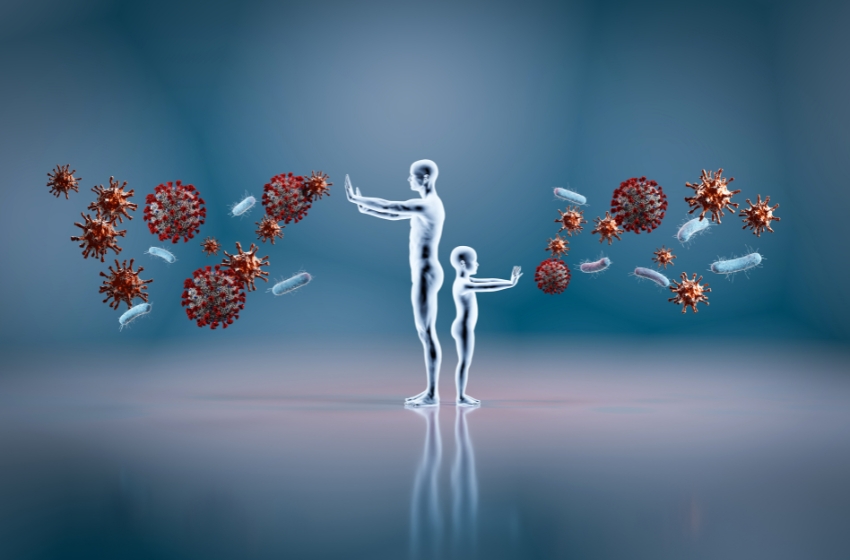
Meanwhile, reports and research suggest low risks of developing myocarditis and pericarditis. For example, US reports indicate that there were 10 cases per million after the first Pfizer doses and 67 cases per million after the second doses. Besides, TGA continues to track the risks in the Australian population.
But if you still have doubts, you can read additional information regarding myocarditis, pericarditis, and COVID-19 vaccines here.
Likewise, you can read about it on Melbourne Vaccine Education Centre’s page on myocarditis and pericarditis.
Moderna’s use in particular groups of people
People with specific conditions need to follow particular measures like staying under observation for 30 minutes after getting the vaccine or consulting an allergy specialist. Also, inform your immunisation provider about the following:
- An allergic reaction because of a previous dose or to an mRNA COVID-19 vaccine (Pfizer or Moderna) component.
- Anaphylaxis to other vaccines or different medications – your provider can check that there are no common components with the Moderna vaccine.
- Confirmed mastocytosis with recurrent anaphylaxis that requires treatment.
Moreover, you need to inform your immunisation provider if you take blood-thinning medication (anticoagulant). Besides, they can give accurate advice and suggest the best timing to get the vaccine, but you must follow additional precautions such as :
- Recent (i.e. within the past three months) myocarditis or pericarditis
- Acute rheumatic fever or acute rheumatic heart disease (with active myocardial inflammation)
- Acute decompensated heart failure.
On the other hand, people who develop myocarditis and pericarditis after a Covid-19 vaccine must avoid further doses. Instead, they must discuss and look for alternative options for different Covid-19 vaccines. Finally, Moderna is safe for immunocompromised people and pregnant and breastfeeding women; if you are planning for pregnancy, you can take the vaccine without any doubts.
Who should avoid Moderna?
Doctors and healthcare professionals suggest the following group of people to avoid Moderna:
- People who have had a serious allergic reaction(anaphylaxis) to the previous dose of mRNA Covid-19 vaccines (both Pfizer and Moderna).
- People who have had anaphylaxis after exposure to any vaccine’s component like polyethylene glycol (PEG).
- People who have encountered myocarditis and pericarditis due to previous Covid-19 vaccine doses.
- People who have suffered additional health crises after an experienced immunisation provider or medical expert pointed out the previous health events occurred due to Moderna or Pfizer’s previous doses.
Post Vaccination Steps
It would help if you knew the steps to follow after getting your vaccination; read what to do after you are vaccinated and how to get your vaccination certificate. Similarly, you need to know about the essential steps to staying safe and the steps to manage your side effects.
In addition, you must be well informed about what to do if you have side effects.




